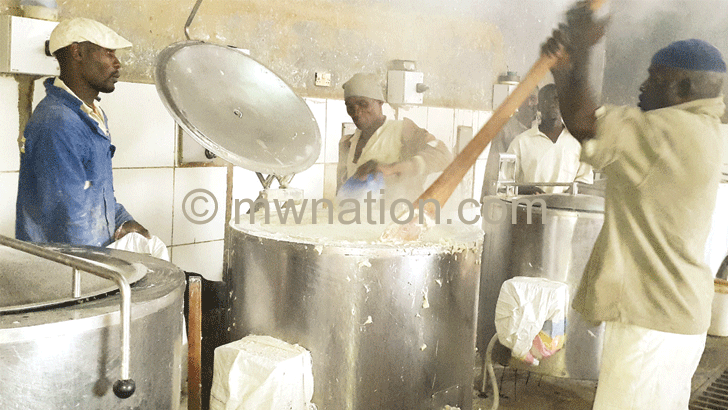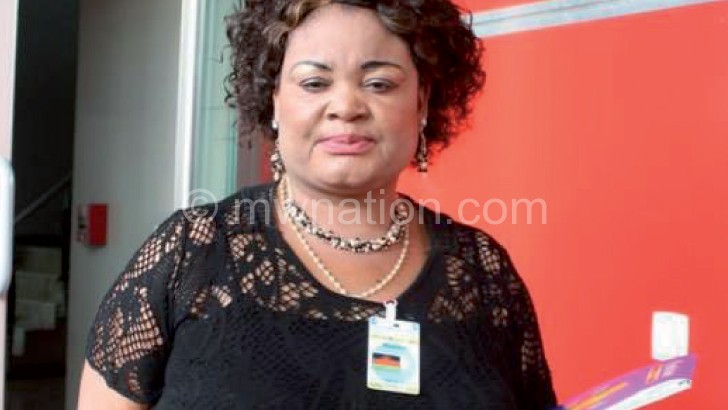Prison food crisis
Five civil society organisations (CSOs) have asked President Peter Mutharika to intervene in the prison food crisis by releasing those convicted of minor offences to ease congestion and food requirements.
The organisations—four local and one international—are Centre for Human Rights Education, Advice and Assistance (Chreaa), Child Rights Advocacy and Paralegal Aid Centre (Crapac), the Paralegal Advisory Service Institute (Pasi), the Youth Watch Society (Yowso) and the Southern Africa Litigation Centre (Salc).
In their letter dated June 7 2016 which The Nation has seen, the President’s attention has been drawn to a critical food shortage in prisons where inmates are currently suffering significant food shortages and are increasingly malnourished, risking illness, severe suffering and death.
Reads the letter: “For months, reports have indicated that prisoners have been facing food shortages. In recent weeks, we understand the situation to have reached critical levels, with many prisoners under the State’s care currently facing severe malnourishment. Not only is the denial of nutritious food to prisoners inhumane but it is also unlawful.”

plenty in this file photo
The petitioners have since asked Mutharika to, among other things, exercise his prerogative under Section 89 of the Constitution to pardon and/or order the immediate release of certain categories of prisoners to decongest prisons and ensure compliance with the rule of law and reduce the pressures on the limited food resources in circulation.
The letter proposes for release prisoners convicted of minor offences in respect of which the payment of a fine was ordered in the alternative (including persons convicted under “rogue” and “vagabond” offences); all terminally ill prisoners and remand detainees as certified by medical officers; and all children under 18 years who are not serving sentences for the commission of serious or violent crimes, and whose immediate release or placement in a more suitable facility has been recommended by a social welfare officer.
The President has also been asked to facilitate the expedited release of migrant detainees; to provide the Judiciary with the necessary support to convene emergency camp courts in all prisons within the next two weeks to determine bail applications of categories of prisoners such as: all remand detainees who have not appeared before a court, all remand detainees whose period in detention has exceeded the prescribed pre-trial custody time limits and all women who are remanded in detention with their children due to unavailability of alternative child care for the children.
Commenting on the food shortage issue, Malawi Prison Service acting Commissioner Little Mtengano downplayed the issue in the country’s prisons, saying it is not exclusive to the institution as the country faced drought and floods that reduced food output.
He said several institutions, including hospitals, prisons and even households, are facing hunger; hence, the issue did not deserve to be presented to the President as it was common knowledge.
Said Mtengano: “For us, there is an intervention being done by government as Admarc is giving us maize. Government is assisting us too. There is also the religious community and Malawians of goodwill who remember that there are people in prisons who don’t work and they help us with food.”
Despite having a holding capacity of about 5 600 prisoners, Mtengano said the prisons have in custody 14 000 inmates.

Reacting to the letter, Prisons Inspectorate chairperson Ken Manda, who is a High Court judge, said the inspectorate has received reports on food shortages in some of the country’s prison facilities and it is currently investigating.
He said: “But in the meantime we are also trying to approach a few donors to try to see if they can at least intervene in the meantime and provide us with some food just as an emergency measure.”
Minister of Information, Communications Technology and Civic Education Patricia Kaliati said government would involve its stakeholders to verify the issues raised in the letter before deciding the way forward.
On the calls to pardon prisoners to decongest the facilities, she said government usually pardons prisoners during commemorations and no one tells it to do so as it is the President’s continued mandate to do so.
“But we pardon on a number of grounds. First if one has done three quarters of his term, secondly if one is critically ill. But we do not just pardon each and everybody because some of the prisoners are really hard-core criminals,” said Kaliati who is the official government spokesperson.
The letter has been copied to Minister of Justice and Constitutional Affairs Samuel Tembenu, British High Commission, Delegation of the European Union in Malawi, Embassy of the United States of America, Ethiopian Embassy (Nairobi), International Organisation for Migration (IOM), Liaison Office of Canada in Malawi, Netherlands Honorary Consulate in Lilongwe, Norwegian Embassy, United Nations on Drugs and Crime – Southern Africa.
Since becoming President after his triumph in the May 20 2014 Tripartite Elections, Mutharika has pardoned 1 284 prisoners. The latest lot to be pardoned was 207 in April to commemorate this year’s Easter celebrations.





